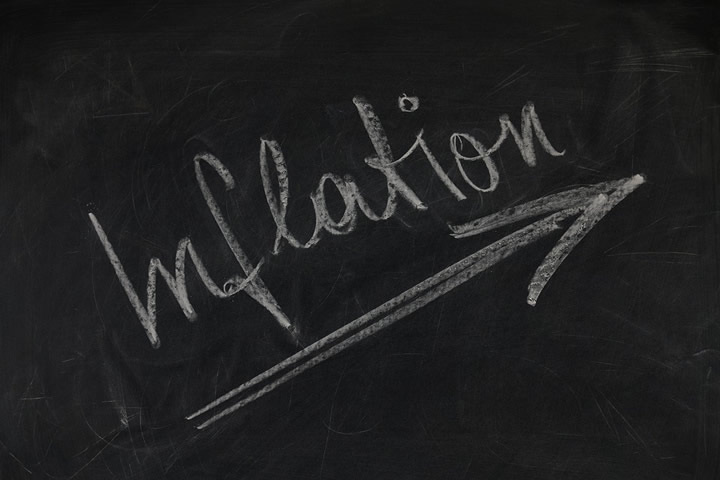How Does Inflation Affect Exchange Rates?
Currencies / Forex Trading Oct 10, 2019 - 08:32 PM GMTBy: Submissions
Consumers are always worrying about the rising cost of basic needs, products, and services. Whether we like it or not, the global economy affects all of us.
When we hear the word inflation, we often think about the increase in the prices of the things we buy. But how important is it to understand inflation and the factors that influence it?

The changes brought about by inflation have a strong bearing on every country’s economy, making it as an essential economic variable. It’s also one of the significant factors that influence exchange rates, thus making it one of the most tracked economic indicators.
It’s, therefore, crucial to learn about inflation to better understand why and how it affects the foreign exchange market.
What is Inflation?
Inflation is the increase in prices and the decreased purchasing value of the currency. When the prices of commodities rise, the value of money falls, and inflation increases. Inflation is calculated by tracking the costs of the essential products and services every month. The Collective Price Index (CPI) contains these collective basket values.
Inflation affects all of us – whether you’re a regular consumer, an investor, or a business person. It affects the rich and poor alike since, as mentioned, inflation is a significant factor affecting the prices of consumer goods. It also has a considerable influence on investment assets, like stocks and currency rates.
How Inflation Affects Exchange Rates
When checking out comparison sites like thecurrencyshop.com.au, it’s essential to remember that inflation has a significant impact on exchange rates and vice versa.
Here’s how inflation affects exchange rates and how exchange rates affect the economy in general.

1. Leads to Currency Depreciation/Appreciation
Monetary inflation is one of the main effects of a country’s economic inflation. In general, the higher the rate of inflation, the weaker the currency becomes. If money becomes weaker against other currencies, it loses buying power. If a currency devaluates, the purchasing power of regular consumers is affected, leading to more consumer debt. The same applies to the government with devalued currency – national debt tends to rise.
2. Affects the Price of Imports
When a country’s inflation rate is high, its currency is negatively impacted. When the value of a currency falls, the exchange rate suffers as well. Importers have to pay more because products are more expensive when their currency loses value against the currency of another country.
For example, if the US is importing goods from China, the price of imports will depend on the exchange rate between the USD and CNY.
If you want to know the current exchange rates, check out Travelex exchange rates.

3. Increases Spending
When a currency depreciates due to inflation, commodities become more expensive since imports and raw materials become expensive. An impending price increase due to lower exchange rates and currency value prompts consumers to spend more now.
Once consumers understand the value of their money will decrease, they tend to stock up on things that they need while prices are not yet severely affected. Such is the case when there’s news of oil price hike; it’s not surprising to see cars lining up to gasoline stations to stock up on fuel while gas prices have not changed.
4. Brings More Inflation
When consumers and business people spend more due to inflation, the economic situation worsens. Because people want to spend the depreciating currency, the value of a currency falls at a faster rate. Thus, the economy gets an overabundance of money that nobody wants, which is detrimental to the currency’s exchange rates in the global market.
5. Affects Forex Markets
When a country’s currency becomes weak due to inflation, it’ll buy fewer amounts of other currencies. Aside from the effects of inflation to the local economy, global tourism is negatively impacted when exchange rates drop because of inflation.
Tourists from the country with weaker currency will spend less or even postpone travel to another country due to the loss of spending power.
Conclusion
Inflation presents several disadvantages, but it also has benefits to the economy. Some inflation will do the economy well as long as inflation outpaces the economy’s growth. Inflation should be kept at a moderate level.
Inflation helps the economy by creating more employment, increasing tax revenue, and wages. It also boosts consumer spending and consumption and improving business profitability. Governments should avoid uncontrolled inflation, which negatively affects the standard of living and currency exchange rates.
By Mahira Khan
© 2019 Mahira Khan - All Rights Reserved
Disclaimer: The above is a matter of opinion provided for general information purposes only and is not intended as investment advice. Information and analysis above are derived from sources and utilising methods believed to be reliable, but we cannot accept responsibility for any losses you may incur as a result of this analysis. Individuals should consult with their personal financial advisors.
© 2005-2022 http://www.MarketOracle.co.uk - The Market Oracle is a FREE Daily Financial Markets Analysis & Forecasting online publication.



